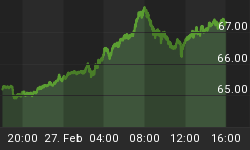The market is not ready for a neutral stance yet. Europe? Germany is stronger than ever...
Stocks are meeting good resistance.
Last week, during the FOMC meeting, members increased the projection for G.D.P. growth and decreased the forecast for the unemployment rate. In reality, risks stay high. The euro zone is in deep recession, job creation is mild and the fiscal burden will be enormous in 2013. The economic growth might be fading, after few months of decent performance. Labor productivity is declining and payroll increases are requested to support G.D.P. growth. On Friday, the first estimate showed activity expanded 2.2% in the first quarter (+2.5% expected). Manufacturing output declined during the last few months of the year. Nonetheless, household spending rose 2.9% (it was 2.1% in Q4). Housing prices are bottoming in various cities, but the sector is still stabilizing. Existing home sales fell for the second consecutive month in March. The Case-Shiller Home Price Index touched instead fresh lows in February.
The labor market is under the lens, as recent data provides contradictory results. On one side, initial claims are higher in April compared to March. On the other, the employment segment of IMS surveys shows an increase in the hiring rate. For Mr. Bernanke, an oscillation of job creation between 150,000 and 200,000 units would be considered fair. If past history repeats its course, unemployment could decline only few more points, before rising toward the highs again. Credit does not pick-up among the private sector. Further accommodation policies from the Fed are expected, if numbers will be disappointing in the coming months. Operation Twist should be extended. In fact, the market is fragile and is not ready for a neutral stance yet. Stocks decline each time the possibility of normalization is brought to the table. Since 1900, the DJI moved laterally for 13/17 years (top/bottom), before initiating a new bull-cycle. The last bear market started in 2000 and is still ongoing. At present, the S&P 500 index is meeting a good resistance at 1440. It is at the conjunction of various lines. A correction to 1340/1310 is still in the cards. A move above 1453 would instead take the price to the recession's high at 1550.

Germany is pulling. Will it be enough?
European countries are still committed to austerity and fiscal discipline. Nonetheless, measures to support growth are now demanded. Mr. Draghi talked about the "growth compact", whose content is unknown so far. In effect, latest data confirms the European recession is worsening, especially in the southern states. In Italy, as an example, the business climate indexes reached the lows of 2008/09. The P.M.I. for the entire euro zone fell the third consecutive month. It is now at 47.4, way below the benchmark of 50. Finally, the April economic sentiment index fell in all the sectors from household to the industry. In France, the unemployment rate is growing rapidly and citizens are building-up additional savings in case of a further deterioration of the economic climate. Germany is among the fewest nations to cope with the crisis quite well. How did it do it? How long will it last?
In 2011, supported by exports, the economy grew 3.1%, one the largest gains since the reunification. Households have decreased their debt burden to 87.7% of the gross disposable income from 106.6 in 2000. Lending rates have continued to decline. So, investors have taken advantage of low interest rates to purchase real estate properties, despite only a moderate increase in family purchasing power. According to the Bundesbank, residential property values rose 5.4% in 2011 on the top of the gains of almost 3.0% registered in 2010. The trend could persist until rates remain accommodative, debt is subdued and the unemployment rate stays low. Currently is at 6.7%, the lowest rate in almost twenty years.















